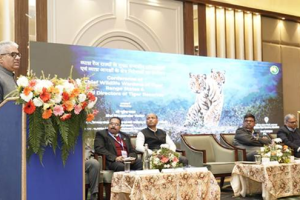DEBAJYOTI CHAKRABORTY
KOLKATA, 26 JULY 2022
Coral reefs are important economic assets of the tropical and sub-tropical marine environment and it has been estimated as economic support of $375 billion per year from this habitat. Control of soil erosion on land, carbon sequestration and breeding grounds for fish are some ecological services we received. There were two catastrophic bleaching events (1998 and 2002) reported from the Indian subcontinent that resulted in a significant reduction in coral cover. In addition to the natural disasters, there was a corallivorous organism, Crown of Thorn starfish ( Acanthaster planci Linnaeus, 1758) reported as a major coral predator from various coral reef ecosystems in the world. Recently, the Zoological Survey of India reported another corallivorous snail, Drupella cornus Röding 1798 as a bioindicator species of the reef habitat of Lakshadweep. When this indicator species assembles on a particular coral species, Pocillopora verrucosa (Ellis and Solander, 1786), the coral species provides a suitable position in their branching space. It also supports this indicator species not only to escape from their predator but also prone to lose its associated zooxanthellae by the sucking behavior of Drupella. Hence the indicator species blocks the photosynthetic food supplement from the zooxanthellae to the corals.
ZSI documented the spatial variability in the distribution of this bioindicator species in the lagoon as well as in the reef slope region of Lakshadweep archipelago and published the data in a peer-reviewed journal, Frontiers in Marine Science (9:914240; doi: 10.3389/fmars.2022.914240) with the Science Citation Index of 5.24. The lead author, Dr. N. Marimuthu has also interpreted the physicochemical variables of marine waters with the assemblage of Drupella cornus and the current status of coral biodiversity of the Lakshadweep Islands. Dr. Dhrithy Banerjee, the Director, Zoological Survey of India added the vitality of further study about the comparison of genetic variability within the species of Drupella cornus is the need of the hour to understand the path of its travel between the coasts of the Indian Ocean.
Inland ecosystems possess pristine environmental characteristics, human influence poses a serious threat to the fragile and susceptible biological process on the islands. Isolated organic islands support a highly sensitive and fragile coral reef ecosystem that offers unique possibilities to study the ecological changes and consequences that come with human settlement. Coral reefs are vital and core economic
assets for any country that lies in the tropical and subtropical marine environment.
The important ecological services provided by these coral reef habitats have been identified as fish production , control of soil erosion on land, carbon sequestration, breeding grounds, etc. The coral reefs of Lakshadweep Islands are predominantly occupied by Scleractinian corals at various levels of the benthic substrate such as reef flat lagoon, reef crest and reef slope, according to the study. They are under great threat due to natural disturbances as well as anthropogenic disturbances. The crown of Thorn starfish is a major coral predator and its devastating population outbreaks have posed a great threat to coral reefs of the Indo- Pacific coastal region in the past five decades.

Advertisement:






























Add Comment